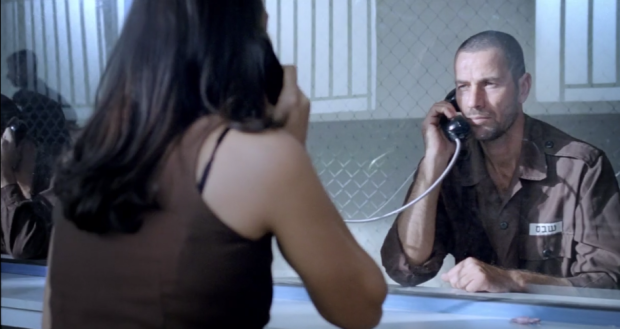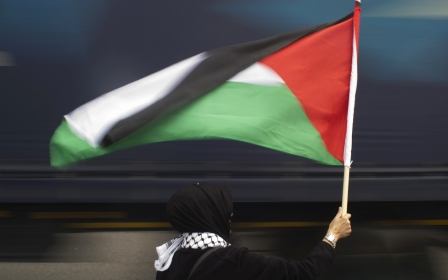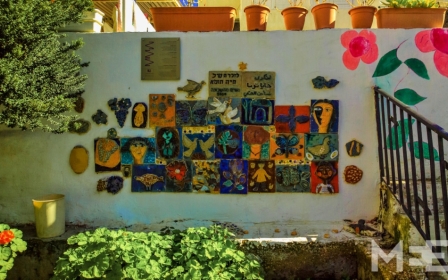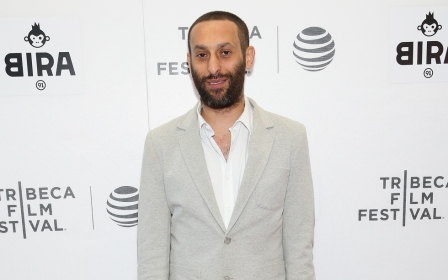Haifa independent film festival: Rejecting the boundaries imposed on Palestinians
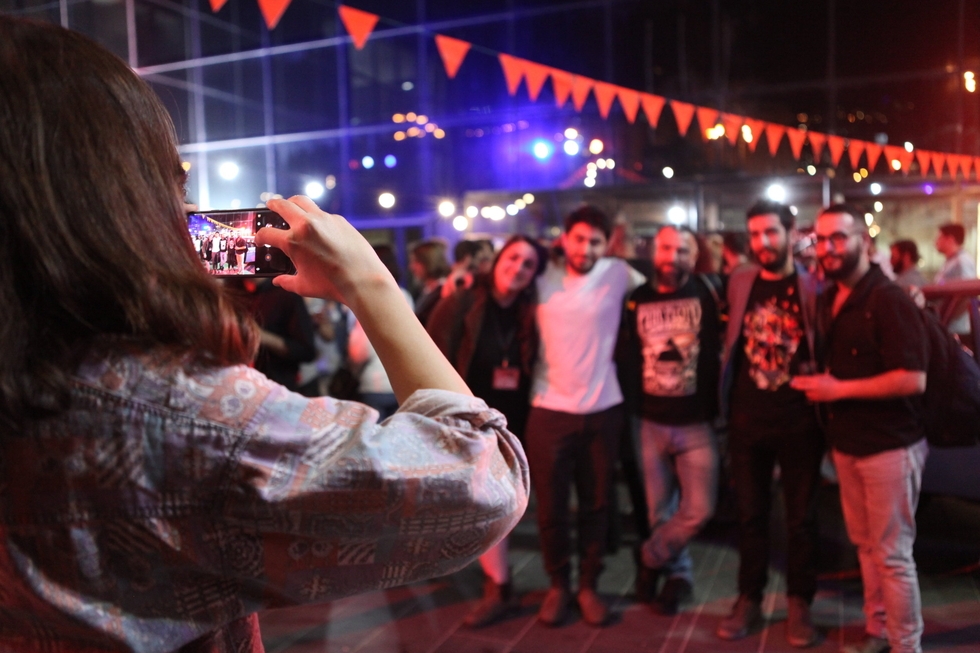
On 21 March, the third Haifa Independent Film Festival (HIFF) opened. Over six days it is showcasing talent from Palestine and the Arab world through film showings and a range of activities including youth workshops.
HIFF organisers describe the event as a "cultural crossing between Haifa and unreachable, prohibited parts of the Arab world", alluding to the isolation of the Palestinian community inside Israel.
Indeed, Haifa today is located in present-day Israel - what many Palestinians call "48", referring to the date it was occupied, or al dakhel (simply "inside" in Arabic).
The Palestinian community in Israel, numbering more than 1.5 million, has long been cut off from the Arab world. Additionally, Palestinians in Israel are often described as "second-class" citizens, yet this phrase does not reflect reality.
Palestinians in Israel are not only marginalised and oppressed, their citizenship functions as the very mechanism of their exclusion.
Stay informed with MEE's newsletters
Sign up to get the latest alerts, insights and analysis, starting with Turkey Unpacked
A turning point
In Haifa, the number of Palestinians is estimated to be 50,000, and as such the city is touted by Israel - and Zionist discourse - as a liberal "mixed city" where Israeli Jews and Arabs live side by side in coexistence.
This, however, is a misnomer and a distraction from the reality of segregation and exclusion. Most Palestinians in Haifa, like their brethren elsewhere in Israel, live in separate neighbourhoods from Israeli Jews.
These neighbourhoods are usually deprived of many services, with urban planning done in the name of maintaining the Jewish character of the state. The narrative of the "mixed city" also attempts to distort the historical reality of Haifa, and it purposely omits that Haifa was a Palestinian city and was part of a very important Arab urban fabric prior to 1948.
HIFF is demonstrating a form of "cultural activism" which is particularly necessary in the context of shrinking Palestinian space and repression of Palestinian identity and culture
During the Nakba, Haifa was occupied by the Haganah (the Zionist Jewish paramilitary organisation) who cleansed the city of most of its Palestinian Arab population. The few thousand that remained in the city were ghettoised in the neighbourhood of Wadi Nisnas. Rather ironically, Wadi Nisnas has now become a centre of Palestinian Arab life in the city.
Prior to the establishment of Israel, Palestine was naturally part of the wider regional Arab landscape and the cities in particular saw a fluid movement of people and goods between them. A rather monumental moment in Haifa's history was when the famous Egyptian singer Oum Kalthoum performed in the city in 1928.
With the establishment of Israel on top of historic Palestine, these social, political and cultural connections were severed for a long time. With this historical context in mind, HIFF is making an important statement about refusing the geopolitical boundaries forced upon Palestinians. By hosting a film festival that celebrates Palestinian and wider Arab cinema, the organisers are making a point that Haifa remains part of the Arab world.
HIFF also stresses the importance of a Palestinian cultural scene that is independent and autonomous. "HIFF's autonomy and self-reliance stems from the need for cultural activism that is free from government interference and censorship," says the festival website. "Through collective work, HIFF strives to demonstrate the power of independency and the determination that there is no need for institutionalisation."
In the context of debates about "normalisation" among the Palestinian community in Israel, this is a strong statement. The rejection of "normalisation" here refers to a concept developed by the BDS movement and argues that Israel must not be treated like any other country or enjoy "normal" relations.
Cultural activism
Practically, this means not having relations with Israeli initiatives, institutions, organisations and so on that are not openly against Israeli oppression and colonisation. For Palestinians inside Israel this can be a challenge, as interactions with the state and its institutions are unavoidable.
Thus, specific guidelines have been developed that recognise the difference between necessary relations and normalising relations. For example, funding from the state for cultural projects constitutes normalisation, as it is possible to get funding from elsewhere.
In this way, HIFF is demonstrating a form of "cultural activism" which is particularly necessary in the context of shrinking Palestinian space and repression of Palestinian identity and culture. In addition to the treatment of the Palestinian community in Israel as an enemy from within through segregation and exclusion, there is a concerted attempt to sever them from occupied Palestine outside the 1948 borders.
This ranges from labelling them as "Israeli Arabs", to legislative measures such as the 2011 Nakba Law which allows the state to withdraw funding from any institutions or group which commemorates the Nakba of 1948.
Thus, beyond celebrating Palestinian and Arab cinema, this festival is demonstrative of an increasing assertiveness of the Palestinian community in Israel and the development of Haifa as an urban centre of Palestinian cultural production.
Indeed, HIFF making a claim to Palestinian space that challenges the limitations of the mainstream discourse about what constitutes Palestine and who qualifies as Palestinian.
- Yara Hawari is the Palestine Policy Fellow for Al Shabaka - The Palestinian Policy Network. She completed her PhD at the University of Exeter in Middle East politics and frequently writes for various media outlets.
The views expressed in this article belong to the author and do not necessarily reflect the editorial policy of Middle East Eye.
Photo: A publicity shot of festival-goers at the Haifa International Film Festival (HIFF Facebook page)
Middle East Eye delivers independent and unrivalled coverage and analysis of the Middle East, North Africa and beyond. To learn more about republishing this content and the associated fees, please fill out this form. More about MEE can be found here.



